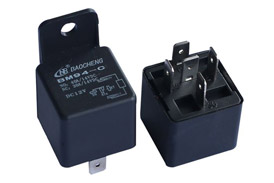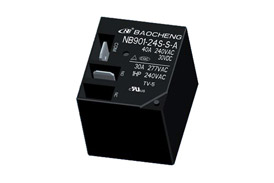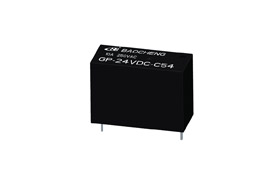As an Automotive Relay Manufacturer, we continue to share with you how to use small power relays.
2. DC resistance: This refers to the DC resistance of the coil. In some product specifications, the rated operating voltage and DC resistance are given. In this case, the rated operating current can be obtained according to Ohm's law. If the rated operating current and DC resistance are known, the rated operating voltage can also be determined.
3. Pull-in current: It refers to the minimum current that a small high-power relay can generate a pull-in action. In actual use, in order to make the small high-power relays reliably pull in, the given voltage can be equal to or slightly higher than the rated working voltage. Generally do not exceed 1.5 times the rated working voltage. Otherwise the coil will be burnt.

4. Release current: It refers to the maximum current that the small high-power relay generates to release. If the current of the small high-power relay in the pull-in state is reduced, when the current is reduced to a certain level, the small-sized high-power relay returns to the state of no power-on, which is called the release action of the small-sized high-power relay. The release current is much smaller than the pull-in current.
5. Load: It refers to the voltage or current allowed by the contact of a small high-power relay. It determines how small and high power relays can control voltage and current. Small high-power relays with small contact loads cannot be used to control large currents or high voltages. For example, if the contact load of the Y3F small high-power relay is 0.02A × 12V, it cannot be used to control the circuit of the 220V.
The above content is BAOCHENG's answer to the relay, I hope to help everyone. If you would like more information about Power Relay, please visit our website or contact us.





















